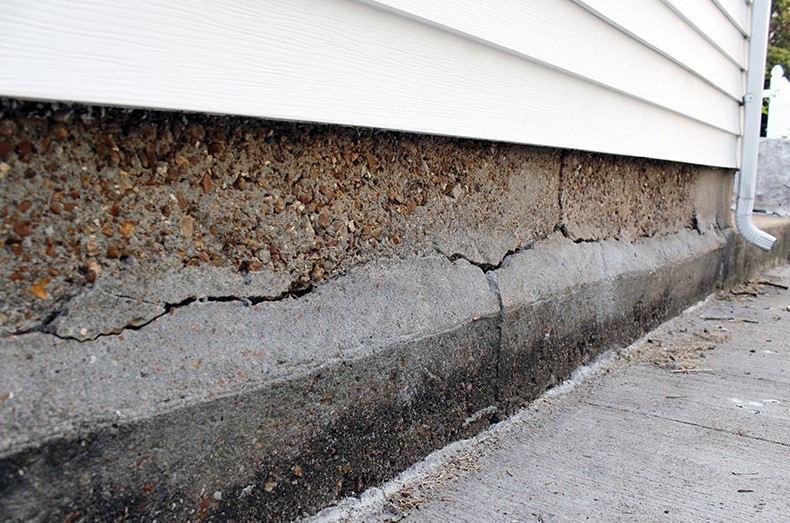
The idea of a “foundation” as it applies to your home is something that you may have heard of, but not really understood. It’s a bit like the ground floor of a building — without it, the “roof” (i.e. the rest of the house) wouldn’t stand a chance.
The foundations of your home are just as important as the rest of it. In fact, they’re so important that they can even affect your pocket. If there are any problems with the foundations of your home, it’s highly likely that you’ll start to see problems, too.
That’s because a weak or problematic foundation is the first area that will show signs of weakness. It’s also the first place that you’ll start to see signs of settlement or settlement-related problems. In other words, a problematic foundation is a sign that something else in your home isn’t quite right.
So, what sort of problems can you expect with your foundation? Let’s take a look at some of the more common issues.
Foundation Problems: What to Expect
There are a few issues that you can reasonably expect to see with your foundation. The first is concrete cracks. These are likely to appear:
- During freezing weather
- When the ground is wet
- When the soil underneath your home is soft
- When foundations are built on soil with a high water content
And, of course, there’s also the usual suspects:
- Strong winds
- Heavy rains
- Cyclones
- Earthquakes
And, as if that wasn’t enough, if any of these things happen when there are no residents or guests in the home, then you’ll have a 2nd, even bigger problem.
Concrete cracks
Cracks in concrete foundations tend to be relatively small at first, but can extend quite deep. They’re also likely to spread, so you should be on the lookout for them across your entire house.
You’ll be able to visibly see the bottom of the crack and, often, the sides as well. The problem with concrete cracks is that they’re hard to spot without a trained eye. There are a few things you can do, though:
Keep an eye on the weather. If it’s been wet or cold, there’s a chance that frozen ground will push up through the soil and cause problems with your foundation. Keep an eye on the foundation. If there are any signs of movement, cracks or settlement, get in touch with a foundation repair specialist as soon as possible.
Cracks in brickwork and walls
Cracks in brickwork tend to be much larger than those in concrete, but are still easy to miss. They’re also likely to be uneven, which makes them even harder to spot. The good news is that they’re not likely to spread, so you can often just fill the crack with a mix of grout and concrete. The bad news is that they can be expensive to repair, so you should get them seen as soon as possible. Look out for the following signs:
- Uneven bricks
- Uneven mortar joints
- Cracks extending into the house
- Dark patches on the inside of the wall
If you find any signs of cracks in your brickwork or walls, get in touch with a brickwork repair specialist as soon as possible.
Shifting foundations
This is one to watch out for. If your foundations are slowly sinking or moving, it could be a sign of problems beneath the surface. The good news is that it’s usually rather easy to spot: it’s the first problem that you see. The bad news is that it’s usually expensive to fix. Look out for the following signs:
- Boards or paint peeling away from the house
- Uneven brickwork
- Shifting or settlement in the ground
- A change in the position of lights or electrical sockets inside the house
If you think that your foundations are shifting, get in touch with a foundation repair specialist as soon as possible.
Poured foundation problems
If you poured your foundation, it’s likely that you didn’t get everything right the first time. As time passes, there’s a chance that water will get underneath your home and seep into the ground. Depending on where it gets trapped, this could lead to a number of problems:
Look out for the following signs:
- Cracks appearing in the walls
- Uneven plaster
- A strong smell coming from the wall
If you spot any of these, get in touch with a foundation repair specialist as soon as possible.
Slope problems
If your house has a slope, you might start to see problems during or after a storm. If so, you should keep an eye on the following signs:
- Shrubs and trees growing in the wrong places
- Watermarks on ceilings
- Unstable brickwork
If you find any of these, call in a professional foundation repair contractor as soon as possible.
Summing up
Your foundation is the first thing to go when you’re building a house. Make sure that it’s strong and stable, and that nothing is compromising it. If you see any signs of foundation problems, get in touch with a foundation repair specialist as soon as possible.
It’s important to remember that your foundation is just as important as the rest of the house. A weak or problematic foundation is a sign that something else in your home isn’t quite right. If you see any signs of foundation problems, get in touch with a foundation repair specialist as soon as possible.
